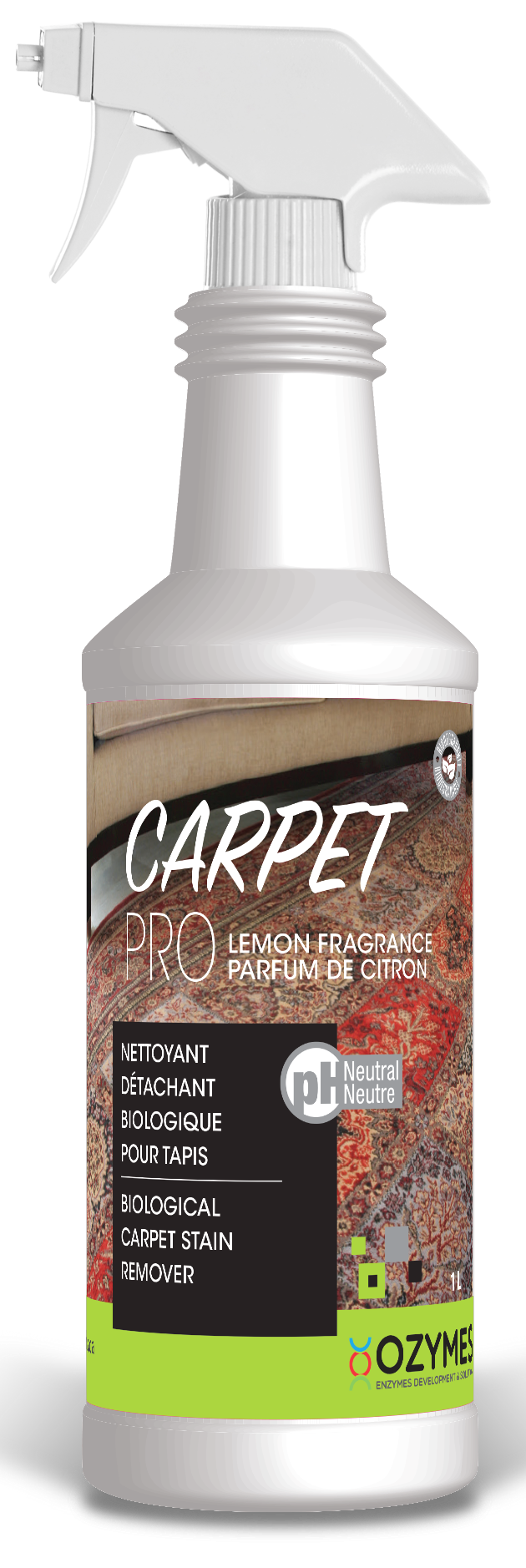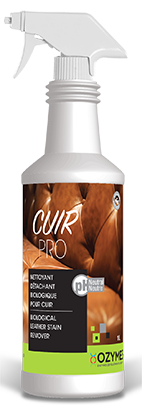x
PRODUCTS

Mechanical Industry
Ozagrese™
Ozagrese Tech™
Ozagrese™
Ozagrese™ is an innovative enzyme-based degreaser with the power of Lipesterase™; a unique enzyme developed by OZYMES™.
Ozagrese™ effectively and efficiently cleans the floors and machines of mechanical, automotive, or metal fabrication shops in a sustainable and green manner.
Ozagrese Tech™
Ozagrese Tech™ is a highly concentrated enzyme-based degreaser with novel features. Ozagrese Tech™ is very effective in industrial applications such as cleaning production lines, use in construction industry, or maintenance of turbines and transformers.
Hotel Industry
Oza-Carpet
Oza-Net™
Oza-Neutral™
Carpet-Pro™
Oza-Carpet
Oza-CarpetTM is an enzyme-based biological formulation for cleaning, degreasing, stain removal and odor control for carpets, rugs, chairs, sofas, curtains and vehicle interior. The mixture of enzymes and surfactants rapidly dissolves stubborn stains and biodegrade organic matter while eliminating malodors after cleaning.
Oza-Net™
Oza-NetTM is a biological cleaner-degreaser based enzyme mixture with powerful features for household cleaning: kitchen, countertop, cooktop hoods, stainless steel, floor, carpet, ceramic, sinks and toilets.
Oza-Neutral™
Concentrated enzyme mixture that has a neutral pH formula recommended for cleaning floors, walls, wood paneling, linoleum, marble and tiles, etc. Oza-NeutreTM has a neutral pH formula, free of mineral solvents, effectively dissolves organic matter and grease, while irreversibly eliminating odors.
Carpet-Pro™
Carpet-ProTM is a mix of enzymes and surfactants, designed to clean carpets and rugs. Carpet-Pro eliminates stains (red wine, food, tea ...) and neutralizes odors in an irreversible way. It safely cleans carpets made of natural fibers (wool, silk, bamboo, coconut ...) and those made of synthetic fibers.
Agri-Food Industry
Ozagrese P™
Ozagrese P Tech™
Ozagrese P™
Ozagrese P™ is a very efficient cleaner based on an enzyme mixture that easily penetrates foods, milk and meat residues, and general restaurant waste. It is useful for areas of restaurants, microbreweries, dairies and butcher shops.
Ozagrese P Tech™
Ozagrese P Tech™ is an ultra-concentrated cleaner based on a mixture of novel enzymes that efficiently penetrates grease, grime, gunk and sticky food.
Automotives Sector
Oza-Truck™
Oza-Carpet
Oza Steel™
Oza-Truck™
Oza-truck™ is a powerful biological car shampoo concentrate with the power enzymatic mix of “LIPESTERASE and PROTEASE”. At room temperature, the mixture of enzymes, surfactants, and emulsifying agents quickly dissolves grease stains and deep cleans metal components. This makes it ideal for interior cleaning of carpets, seats and fabric roof. Moreover, it leaves a film preventing the redeposition of grease giving the lustrous appearance of the dashboard. Also, it perfectly cleans the front grille traces of insects and blood.
Oza-Carpet
Oza-CarpetTM is an enzyme-based biological formulation for cleaning, degreasing, stain removal and odor control for carpets, rugs, chairs, sofas, curtains and vehicle interior. The mixture of enzymes and surfactants rapidly dissolves stubborn stains and biodegrade organic matter while eliminating malodors after cleaning.
Oza Steel™
Oza-Steel™ is an enzyme-based rust remover first of its kind to target rust on different types of metals without the use of acids. Indeed,
Domestic Sector
Oza-Neutral™
Oza-Net™
Carpet-Pro™
Animal Pro™
Cuir-Pro™
Oza-Neutral™
Concentrated enzyme mixture that has a neutral pH formula recommended for cleaning floors, walls, wood paneling, linoleum, marble and tiles, etc. Oza-NeutreTM has a neutral pH formula, free of mineral solvents, effectively dissolves organic matter and grease, while irreversibly eliminating odors.
Oza-Net™
Oza-NetTM is a biological cleaner-degreaser based enzyme mixture with powerful features for household cleaning: kitchen, countertop, cooktop hoods, stainless steel, floor, carpet, ceramic, sinks and toilets.
Carpet-Pro™
Carpet-ProTM is a mix of enzymes and surfactants, designed to clean carpets and rugs. Carpet-Pro eliminates stains (red wine, food, tea ...) and neutralizes odors in an irreversible way. It safely cleans carpets made of natural fibers (wool, silk, bamboo, coconut ...) and those made of synthetic fibers.
Animal Pro™
Animal ProTM is a Biological Cleaner and Odor remover, which quickly degrades dirt and odors from vomit, feces and even stubborn urine, leaving behind a fresh, clean smell.
Cuir-Pro™
Cuir-ProTM is a biological leather stain remover. It removes dirt of organic origin from leather, neutralizes unpleasant odors and leaves a fresh smell of flowers. It's an enzymatic ready to use formula that is 100% composed from organic ingredients.
Heavy Industry
Oza-Power™
Oza Steel™
Ozagrese Tech™
Oza-Power™
Oza-Power™ is a powerful bioenzymatic degreaser with innovative features , it has ideal use in oil industry, mining and construction.
Oza Steel™
Oza-Steel™ is an enzyme-based rust remover first of its kind to target rust on different types of metals without the use of acids. Indeed,
Ozagrese Tech™
Ozagrese Tech™ is a highly concentrated enzyme-based degreaser with novel features. Ozagrese Tech™ is very effective in industrial applications such as cleaning production lines, use in construction industry, or maintenance of turbines and transformers.
Feed Additives
Mycotoxin biotransformation
Enzymes in animal feeds
Personal Care
Our Services
OZYMES works closely with industry worldwide to deliver practical and cost effective novel solutions to resolve complex problems. If you require technical assistance, or information about our products, please contact our dedicated technical support team on:
Phone: (819)374-9171
Phone: (962)6-4204242
Email: info@ozymes.ca
OZYMES has solutions that will meet the needs of your most demanding customers:
- Sustainable solutions
- Reduce costs
- Make cleaning more efficient, faster and safer.
If you need advice and expertise to develop new formulations, satisfy your customers and protect your market share then OZYMES is your answer.















